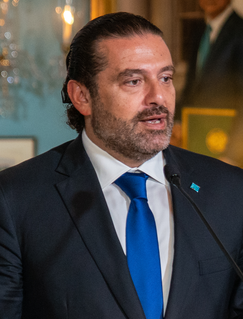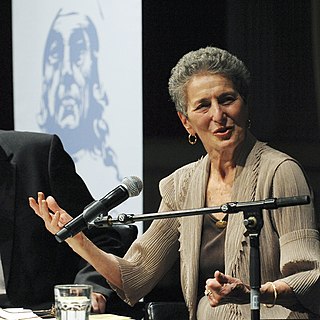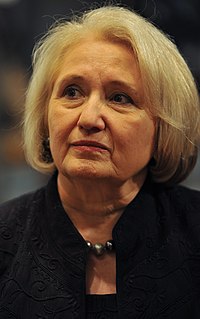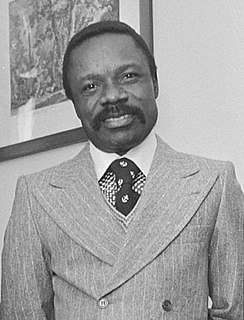A Quote by Zainab Salbi
Women in the Arab world have a rich history in their active participation in political change from the Algeria revolution against the French occupation to the most recent revolution in Tunisia, Egypt, Libya among other countries. The question is not their participation. Their question is the incorporation of women's voices fully in the new definitions of the countries where change has happened.
Quote Topics
Related Quotes
The great question for our time is, how to make sure that the continuing scientific revolution brings benefits to everybody rather than widening the gap between rich and poor. To lift up poor countries, and poor people in rich countries, from poverty, to give them a chance of a decent life, technology is not enough. Technology must be guided and driven by ethics if it is to do more than provide new toys for the rich.
We Marxists believe that a revolution will also take place in other countries. But it will take place only when the revolutionaries in those countries think it possible, or necessary. The export of revolution is nonsense. Every country will make its own revolution if it wants to, and if it does not want to, there will be no revolution.
You can understand Tunisia revolution as a failure to censor the internet. And Libya had that failure too. It's very difficult for governments that are autocratic and don't have broad popular support to be in power when a lot of people have these devices. That was what Arab Spring was about, that people could express this and lead to revolution.
There is something very consistent about governance in the Arab world. Among the Arab countries today in which there is a modicum of internal stability, each is controlled by an Arafat-type figure - an anti-democratic strongman who is able to crush all challenges to his authority. Likewise, among those Arab countries that aren't ruled by a despot, the political dynamic is also consistent: In Lebanon, Iraq, and now Gaza, sectarian violence is the dominant form of political expression.
If you look at the list of the top wheat importers for 2010, almost half of them are Middle Eastern regimes: Egypt, Algeria, Iraq, Morocco, Yemen, Saudi Arabia, Libya, and Tunisia. Egypt is the number-one importer of wheat in the entire world. Tunisia leads the entire world in per capita wheat consumption. So it's no wonder that the revolutions began with Tunisians waving baguettes in the streets and Egyptians wearing helmets made of bread.
Even after the whole democratization process, it's quite clear that the United States are not seen in a positive way in all the Muslim-majority countries - in Egypt, in Libya, even in Tunisia - even though we have now a kind of trying to be recognized as democrats by the Islamists who are running, you know, Tunisia and Egypt. But the popular sentiment is very, very negative.
Carla Hesse has given us an astonishing new look at women's struggle for independent expression and moral autonomy during the French Revolution and afterward. Denied the political and civil rights of men, literary women plunged into the expanded world of publication, answering the men's philosophical treatises with provocative novels about women's choices and chances. Lively and learned, The Other Enlightenment links women from Madame de Stael to Simone de Beauvoir in an alternate and daring path to the modern.






































